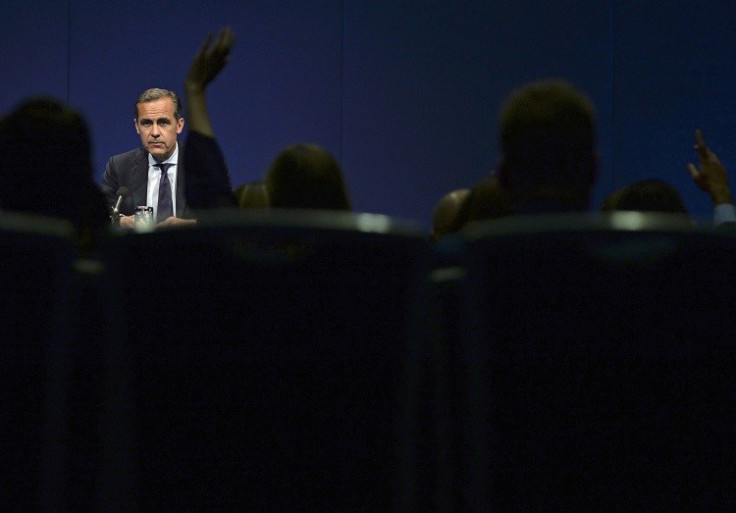BoE: Doubts Surround Mark Carney Forward Guidance After UK Unemployment Rate Drops

City analysts are saying the Bank of England has been too pessimistic in its prediction of when the UK unemployment rate will fall to the 7% threshold set out in its forward guidance for the path of interest rates, after it unexpectedly dropped in the three months to July.
Under Governor Mark Carney, the BoE said it would consider hiking its key rate up from the record-low 0.5% and tightening monetary policy when the unemployment rate hits 7%, which it expects to happen in late 2016, in order to give markets confidence that there will be no sudden shocks from the central bank.
However, a raft of improving data from the UK economy which is outperforming expectations, compounded by the sudden unemployment rate fall from 7.8% to 7.7%, is raising further doubt about the length of the BoE timetable for when it will look at raising rates again.
"Overall, a stronger-than-expected set of labour market data. It is early days, but these data challenge both the MPC's projections for the unemployment rate ... and the consensus among City economists," said Ross Walker, senior UK economist at RBS, adding that the solid numbers "will bolster financial market expectations for the first hike in Bank Rate to come much sooner than the City economist consensus".
Investec's Victoria Clarke said the fall to 7.7% was in line with her forecasts.
"Coupled with the sharp drop in claimant count unemployment seen today and the robust rise in employment we see today's report providing further evidence of the UK's jobs recovery gaining momentum," she said.
"This reinforces our expectation that the unemployment rate will come down to the 7% threshold featuring in the Bank of England's forward guidance more quickly than the Bank forecasts.
"Hence this adds to expectations that MPC will be forced into reassessing its stance on the Bank rate ahead of 2016 as the current guidance would imply."
Sasha Nugent, a Caxton FX analyst, said the labour market data will "most definitely cause the market to question BoE's policy".
"All figures are pointing to the fact that maybe the market is right, the BoE may have to raise rates sooner than they think," she said.
However, the Centre for Economics and Business Research (CEBR) backed the BoE's assessment of the UK unemployment rate's path.
"Although the rate was expected to remain at 7.8%, this move is unlikely to change the timeline for interest rates rises as set out in the Bank of England's forward guidance," said Katie Evans, CEBR economist.
"We continue to expect that rates will remain at 0.5% until 2016."
© Copyright IBTimes 2025. All rights reserved.






















